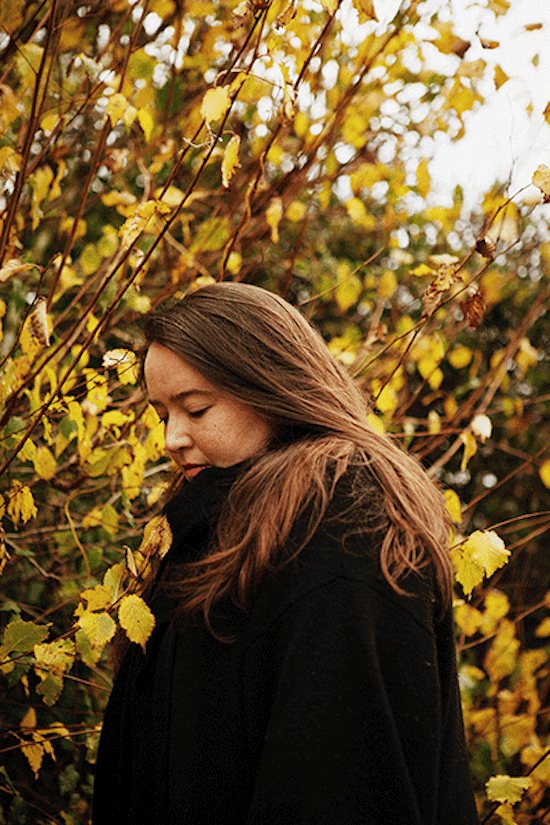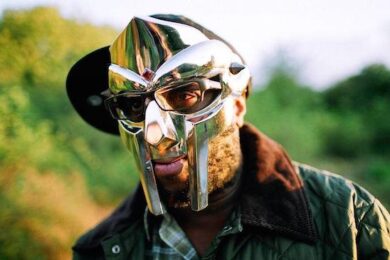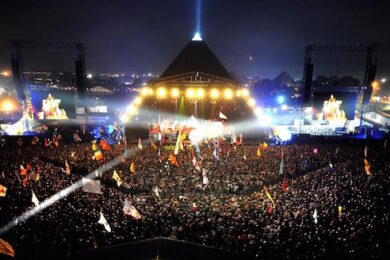Photograph courtesy of Mikael Gregorsky
The worlds of folk and Early Music are sometimes subject to accusations of head-in-the-sand escapism, figuring as havens for those unable to cope with the complexities of modern life and musical innovations. You’d be mistaken in levelling such accusations at Laura Cannell, however. Using self-developed techniques of the "deconstructed bow" and "double-barreled recorders", Cannell combines a background in folk and medieval traditions with an improvisatory approach to create exploratory music that expands the no-man’s land between the archaic and the innovative, transcending temporality in instantaneous compositions.
Perhaps surprisingly, Cannell insists she’s not the only contemporary musician with a deep interest in Early Music: "When you say ‘medieval’ you’re going to imagine people in costumes being twee with tankards, but there’re so many people that tap into that really early stuff." The role-call of her recent remix EP, featuring contributions from Kemper Norton, Hacker Farm, Ekoplekz and Luke Abbott amongst others, might confirm this assertion. Cannell’s first solo release, Quick Sparrows Over The Black Earth, came out last year on her own Brawl Records, a venture she originally set up in 2005 to release music by her now-defunct folk troupe Horses Brawl. This DIY approach was born out of her innate resistance to categorisation, as she explains: "I never fitted into anything. Being a recorder player is a bit of a weird thing – you can’t join an orchestra, not that I’d have done that. And being a fiddle player and not a classical violinist, you’re not really in the string world."
Cannell’s career thus far has been characterised by a paradoxical existence within and resistance to the conventions of formal classical training and oral folk traditions. Whilst doing her masters degree at UEA, she took the opportunity to attend the sonic arts and electroacoustic music course, which precipitated a move into more experimental areas with her work, going in her own words, "more extreme; more medieval and more contemporary, pushing a lot of the classical and baroque stuff out." Recently she has been working with Ralph Cumbers (aka Bass Clef) and Charles Hayward of This Heat as Oscilanz, an improvisatory trio who create wild, psychedelic interpretations of the music of the 12th century mystic and composer Hildegard Von Bingen. Intrigued by all this, the Quietus caught up with Cannell before a gig in Bristol to discuss the coexistence of the medieval and the experimental within her work.
Your music is based on fragments of melodies from medieval music. Can you tell us more about where your interest in Early Music comes from?
Laura Cannell: I think it was just there in all the repertoire for recorder. As you go through the grades there’s always medieval stuff in there, but I think it just spoke to me the most. I don’t want to do it in an ordinary way and just play what’s there because I don’t believe that’s what anyone would have done. What I’m interested in is playing around the notes; using the notation as a graphic score and playing in the spaces above and below. I’m really not interested in playing from the beginning to the end because I find that really boring.
How did you go about selecting the melodic fragments used on the album?
LC: I used a bunch of stuff by Hildegard von Bingen, the 12th century nun, mystic and composer. The trouble is I’m really not religious but all the music that was written down and kept is. But there’s some secular stuff as well, and there’s the Cantigas de Santa Maria. I met this bloke from Scotland who did loads of editions of all this stuff because I can’t read the old manuscripts, so I’ve used a lot of his stuff. Just trawling through masses of it, and discarding masses of it, finding bits that I like, with it often getting down to about three or four notes that I use. It takes months and months to find things you like but I think I’ve whittled it down to a path now.
You recorded the album in churches. Is place important in your music, either in terms of recording atmospheres or as a more general influence?
LC: I think a lot of it’s to do with money, because I’m a bit skint. But it’s also a reaction against using studios and being a bit freer, going against all these rules that I put down for myself with Horses Brawl and other projects. I tried to find a place that would be quiet and where there wouldn’t be any people, where I could just turn up whenever I wanted, because I felt that I didn’t want to be restricted in any sense.
So it was partly from being frugal but mainly because I didn’t want to have to talk about what I was doing. I just didn’t want to explain myself, not even to myself.
Was there any consideration of the acoustics?
LC: I did try a few different churches out. A few of them sounded a bit spooky and weird, some of them were too bright or too dull or whatever, but luckily the one near me just sounds really good. A few baroque groups use it. It’s not a spooky church, it just feels very much like thousands of people have been there over the centuries, whether they believed in God or not, it was a centre of the village. So I kind of liked that aspect of it. They were built to sound amazing and they do.
Quick Sparrows Over The Black Earth is quite a striking title and in general your instrumental music is interestingly titled. Where does the inspiration come from for this?
LC: Quick Sparrows… came from a text by the Greek poet Sappho. Fragments Of Sappho is the name of the book [a 2002 bilingual edition of Sappho’s work translated by Anne Carson], and there are all these fragments of her work that have been translated into English. So the title is a line from one of those poems. I was feeling, not depressed, but quite melancholy when I was recording the album. Some of it is taken from vocal pieces, and pieces with names, but some of it I’ve just made up. ‘Marsh Land Lullaby’ is named like that because I live right on the marshes, behind my house is woods and a field, and further down are reeds and marshes. It all sounds very idyllic but it’s freezing and barren as well.
Do you see your music as tapping into any spiritual or mystical ideas, notions heavily associated with music in the past but perhaps less so now?
LC: Maybe. Whenever you do music you’re always trying to tap into something a little bit magical, something difficult to contain or describe. That’s what makes you love it: the thing that you can’t explain that happens in your head when listening or playing. So yeah, not on purpose, but I just want to do something that I think sounds brilliant, that I really love. Again, I don’t want to say "anti-classical", but I think it is anti-classical because (in that tradition) you can get very restricted, it becomes very much about the performance and the notes and what shoes you’re wearing. Being the right sort of performer. And I hate that, I feel like I’ve had a reaction against it; I want the music to move me.
How did the Oscilanz project come about?
LC: That was Ralph [Cumber]’s idea. He’d been playing lots of club gigs, lots of late-night or early-morning stuff. I think he just wanted to explore something else, playing in completely different venues. It’s amazing how many people who do really contemporary music or dance music are really inspired by medieval stuff. Alex Neilson’s [Trembling Bells, Death Shanties] record collection is massively medieval; it’s crazy, really early stuff. It’s the same with Ralph. He’d been listening to lots of different versions of Hildegard von Bingen and putting them onto trombone. He wanted to work with Charles Hayward [This Heat], who said he was up for it, so then this project came into his head where he thought "I need someone who can do medieval music but be a bit experimental". So he found me on the internet.
Your remix EP features contributions from some forward-thinking electronic artists. Do you see any continuities between your work and the remixers?
LC: Yeah, I liked the idea that they all took fragments of fragments. I just gave all of them the album and they just did what they wanted. With Ralph I just wanted to know what he could do as Bass Clef. Hoofus is my husband, so that was quite handy. He’s an electronic musician, he’s really influenced by and interested in medieval and Early Music, and we’ve got an experimental fiddle duo that we do together. I just wanted to give it to people and not be precious about it. Luke Abbott is much more mainstream, but we’ve known each other for about ten years, we’re both from the Norwich underground scene.
Down the years lots of outlier musicians have made connections between folk music and Early Music, like Shirley Collins’ work with David Munrow, and John Renbourn as well. Where do you see the intersections between those two styles?
LC: It’s quite embarrassing, but when I started doing proper medieval stuff, it was in medieval banquets, around the time I was doing my A-levels. But a lot of the musicians were folk musicians, it crosses over. Where do you draw the line?
I guess I wasn’t sure if the two styles were pretty distinct and people only started making connections in the last 40 years or so.
LC: There’s a lot of Early Music which is for dancing, ceilidhs, barn dancing or formal social dancing. But then there’s the high art end which is the more composed stuff and church stuff. So I guess there’s still a distinction with that Early Music; you don’t get much Monteverdi or Praetorius in the material that seeps into the folk stuff, but you do get lots of "anonymous". If it’s "anonymous", it’s early; if it’s "traditional", it’s folk, y’know? It gets very complicated.
But David Munrow is someone who I listen to quite a lot – he was an amazing pioneer. And Peter Bellamy from The Young Tradition who are from Norwich. So I guess those two people, one doing Early Music and the other doing folk, but they also did the same kind of music as each other. I don’t really know the answer! It’s just how you describe yourself. Am I a folk musician? I don’t know. I feel like one, I’m a fiddle player. Or am I an Early Musician? I don’t know. I’m just a musician.
Where are you aiming to go next with your music?
LC: I’m just about to start recording some new stuff. I’m developing the overbow ["deconstructed bow" technique] and double recorder stuff and I’ve got a good batch of interesting fragments, so I’m going to be in the freezing church over the winter. Oscilanz have been doing a bit of recording. It just feels really new and fresh still; it’s picked up quite a lot and this is my first proper solo work other than recitals. So I just want to do more recordings and more collaborations. I’m doing something with Alex Neilson, which is based on Monteverdi and experimental music. So again it’s Early Music but not renaissance fair, hurdy-gurdy music.
Quick Sparrows Over The Black Earth is out now via Brawl Records, with Cannell set to play the following upcoming dates:
JANUARY
Thu 29 – The Tin Music & Arts, w/ Trembling Bells & Mike Heron and MacGillivray
FEBRUARY
Tue 3 – Muckle Mouth #2 at The Horse Hospital, London
Fri 27 – Harmonic Series at Royal Festival Hall, London




